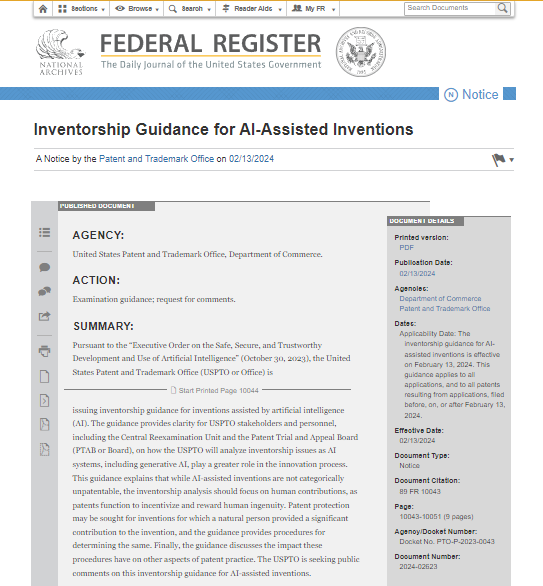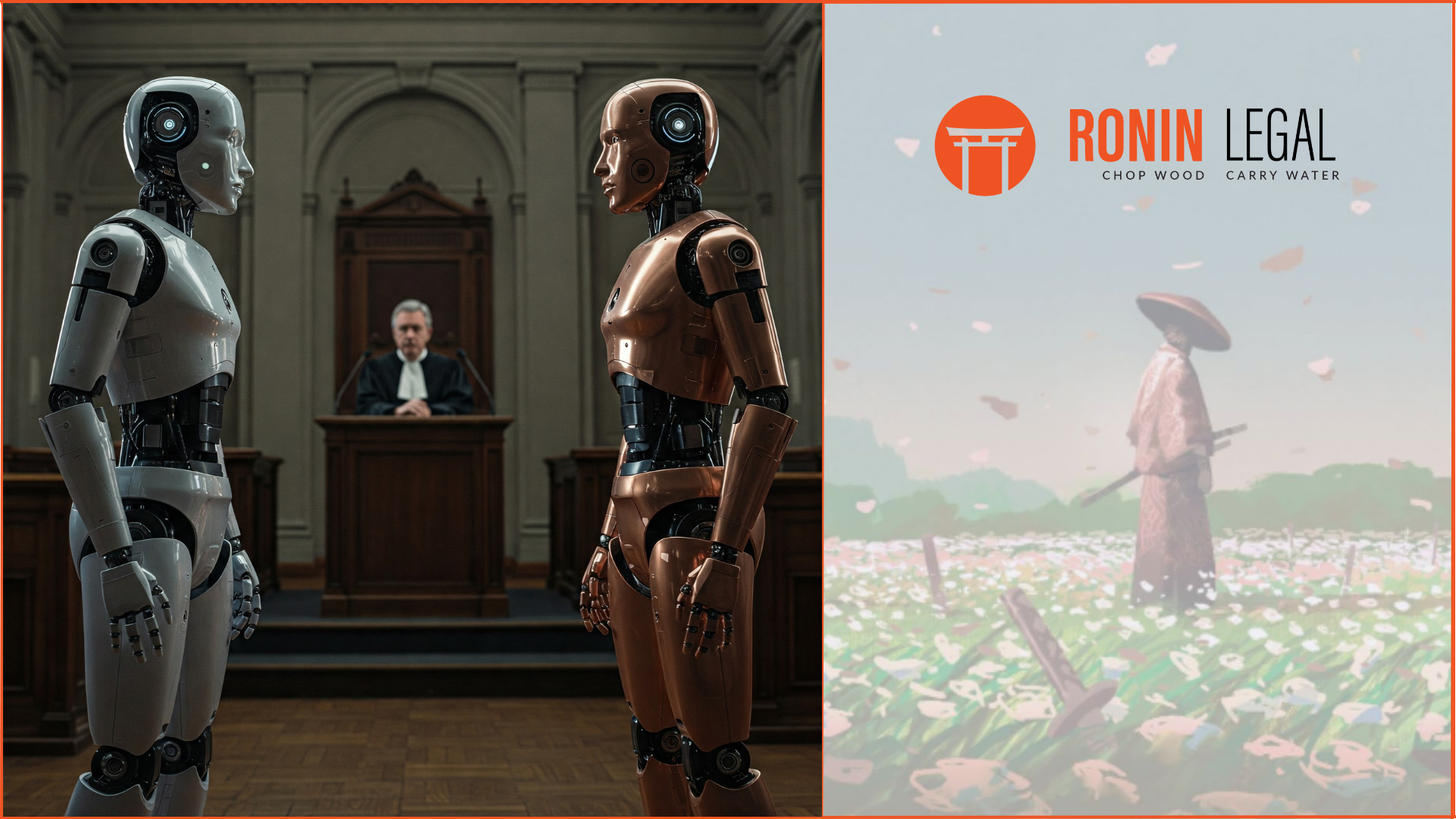Here’s what you’ll find in this fortnight’s AI updates:
- USPTO issues guidance on AI-assisted patents, focusing on ‘human contribution’
- ASEAN releases guide on AI governance and ethics
- UK Government releases a consultation update on AI white paper
USPTO ISSUES GUIDANCE ON AI-ASSISTED PATENTS, FOCUSING ON ‘HUMAN CONTRIBUTION’

On 13 February 2024, the U.S. Patent and Trademark Office issued new guidance stating that patents can include AI-assisted inventions, subject to significant contribution by a natural person. A determining factor in patentability is ‘human contribution’, as it is the function of patents to incentivize human ingenuity.
According to a memo released on 6 February by USPTO Director, Vidal, submitting AI-cited research from unreliable sources while presenting an application to a patent/trademark board, could attract legal action, including disciplinary sanctions and criminal liability.
ASEAN RELEASES GUIDE ON AI GOVERNANCE AND ETHICS

On 2 February 2024, ASEAN released its draft of the “ASEAN Guide on AI Governance and Ethics”, following the 4th ASEAN Digital Ministers’ meeting, which was earlier announced in October 2023. The Guide refers to seven guiding principles, including transparency and explainability, fairness and equity, security and safety, human-centric AI, privacy and data governance, accountability and integrity, and robustness and reliability. It also recommends national-level initiatives for fostering AI skills in the workforce and nurturing AI talent. The guidance also provides regional-level recommendations to set up an ASEAN Working Group to administer AI governance.
UK GOVERNMENT RELEASES A CONSULTATION UPDATE ON AI WHITE PAPER

On 6 February 2024, the UK government released a consultation outcome update on the white paper titled “pro-innovation approach to AI regulation”, published in March 2023. The response paper reaffirmed the original approach to place greater responsibility on existing sector-specific regulators to monitor AI progress, while also announcing the establishment of an AI Safety Institute that will regulate advanced general-purpose AI systems.
The response also revealed plans to allocate $100 million to support AI innovators, developing central regulatory bodies for risk monitoring, regulatory coordination, and knowledge exchange, and introducing mandatory measures to address public safety in due time.
Authors: Keshav Singh Rathore, Shruti Gupta.














